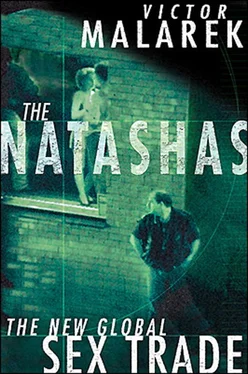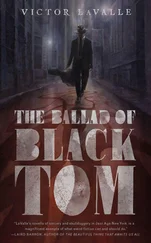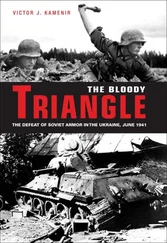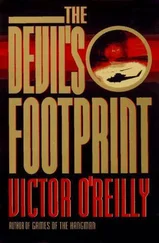Every single girl was physically and emotionally abused by the heartless goons who ran the center.
Those who resisted were beaten. If they did not cooperate, they were locked in dark cellars with rats with no food or water for three days. One girl refused to submit to anal sex, and that night the owner brought in five men. They held her on the floor and every one of them had anal sex on her in front of all of us. She screamed and screamed, and we all cried.
The next day, the girl tried to hang herself.
“Many girls attempted suicide,” Sophia said. “I was told a few were successful and their bodies were buried in the woods.”
Sophia’s biggest fear was being broken in herself.
I dreaded that moment. In the first day, I thought to myself, I will fight back. Then I saw what they did to one girl who refused. She was from Ukraine. Very beautiful, very strong-willed. Two of the owners tried to force her to do things and she refused. They beat her, burned her with cigarettes all over her arms. Still she refused. The owners kept forcing themselves on her and she kept fighting back. They hit her with their fists. They kicked her over and over. Then she went unconscious.
She just lay there, and they still attacked her anally. When they finished, she didn’t move. She wasn’t breathing. There was no worry on the faces of the owners. They simply carried her out.
A couple of days after the Ukrainian girl had been taken away, one of her compatriots dug deep for the courage to ask about her. The owner’s reaction was sharp, swift and brutal.
He grabbed her by the hair and dragged her outside. When she returned, she looked like she had stared death in the face. She told us the owner took her to a forest not far from the building, handed her a shovel and instructed her to dig. She believed she was digging her own grave. As she dug, she noticed a fresh mound of earth beside her. She was certain this was the grave of the Ukrainian girl.
After an hour, the man snatched the shovel from the girl’s hands and ordered her out of the shallow pit. His message was clear: “Ask any more questions and you will end up in the grave.”
On her third day of captivity, Sophia was “trained.” She submitted without resistance. She moved as she was told. She feigned excitement at every thrust.
I knew I did not have the strength to endure what would surely follow if I resisted. That night, I just wanted to die. I was so humiliated. To these men, I was just a piece of meat. From that moment on, I have felt like filth. I cannot wash that feeling from my body or my mind no matter how hard I try.
A week later, Sophia was sold to a pimp along with two other women. She was now his. She knew him only as Saba, a twenty-something Albanian. The three were taken by truck into Albania and then smuggled into Italy in the dead of night on a speedboat across the Adriatic. Saba was a particularly nasty sort, with a penchant for threatening his “property” with burning cigarettes. He put the women to work on Via Salaria, a busy roadway leading into the Eternal City. They were housed in a damp basement apartment where they slept on foam mattresses. The pimp kept all the earnings, except for a small stipend for basic necessities and food. “For certain, he made a thousand dollars a night from us,” Sophia said. “We were not permitted to return to the apartment until he had that much money.”
Three months later, with the help of a sympathetic regular, Sophia ran away and was taken to a Catholic rescue mission in southern Italy.
FOR HUNDREDS OF “BROKEN IN” WOMEN trafficked from Eastern Europe, the next stop on the road is the infamous Arizona Market. Between Sarajevo and Zagreb, in northwest Bosnia near the frontier with Serbia and Croatia, there lies a stretch of road called Arizona Highway. Beside it is Arizona Market. With its narrow alleyways and hundreds of pine-fronted stalls, it resembles an American gold-rush town from the 1800s. During the day it bustles with throngs of eager shoppers navigating a labyrinth of dirt roads in search of a bargain. Here you can find not only T-shirts, shoes, makeup, mattresses, ghetto blasters and pirated CDs, but also knock-off brand names like Rolex, Levi’s and Ralph Lauren, dried fruit, gleaming porcelain toilet bowls and freshly killed chickens.
At the entrance a large sign pays homage to the Americans: “Our thanks to the U.S. Army for supporting the development of this market.” Constructed in 1996 after the Balkan civil war, the market—often jokingly referred to as the Wal-Mart of Bosnia—was the brainchild of an American general. It was envisioned as a place where all factions—Croats, Serbs and Bosnians—could set aside their ethnic and religious rivalries and come together in the spirit of free trade. In the daytime, with its hordes of shoppers, the market looks like an experiment that has somehow gone right. But when the sun goes down a more pernicious trade kicks into gear.
In the shadows of night, the T-shirts and shoes are replaced by luxury cars and SUVs stolen off the streets of the European Union, not to mention weapons, illegal drugs and black-market cigarettes by the truckload. But the most valuable goods are the ones with a pulse—young women and girls trafficked from Eastern Europe.
Mara Radovanovic, vice-president of Lara, a local women’s group in nearby Bijeljina, shakes her head in disgust at the Arizona Market. “That is when the traders come to buy girls. They order the girls to take off all their clothes and they are standing in the road naked. They are exposed to be purchased like cattle.” Radovanovic said trafficked women are also sold at “sex slave auctions” in nightclubs with names like Acapulco and Las Vegas that have sprung up inside the market. “The girls appear naked on stage with numbers in their hands. Men walk up, touch their flesh, inspect their skin and even look into their mouths before they make a bid.” Once purchased, the women are held in slavery-like conditions and forced to work in bars and brothels throughout the region. “Their personal documents are taken away and they are not permitted to go out without a guard. They are paid no money at all, and often nightclub owners force them to have sex with clients without protection. As a consequence, every week there is at least one of those women undergoing an abortion in the Bijeljina hospital.”
In the surrounding hamlets, “collection centers” have emerged where hundreds of women are held captive in the basements, cellars and attics, awaiting their turn on the auction block. “Most of them are young, naive girls from rural areas who believe that they will find a job across the border,” Radovanovic said. “They realize what kind of job they have to do only when they end up in the Arizona Market or in Serbia. By then it is too late and they have little chance to escape.”
The women are sold to the hundreds of brothels and bars that pepper the countryside throughout Bosnia-Herzegovina. There they service the locals and, more significantly, the huge numbers of foreigners who make up the international peacekeeping and reconstruction forces. Those women who aren’t purchased on the auction block end up staying in Arizona, catering to shoppers and local policemen at a dozen clubs in the market.
At an urgent one-day meeting in late fall 2001 sponsored by Radovanovic’s group, the local police were invited to speak about law enforcement efforts to end the trade. Within minutes, the two male officers were put on the hot seat. Surrounded on all sides by determined women—all volunteers with local and regional NGOs—they were asked, point-blank, why the police simply sit back when it’s obvious what’s occurring in virtually every town in the area. Looking uncomfortable, the officers summoned one pathetic excuse after another, citing conflicting laws and regulations covering the various jurisdictions. But Radovanovic grilled the men relentlessly. She accused the police, straight out, of complicity and corruption, pointing out that a strip bar reputed to harbor trafficked girls operated with impunity directly across from the Bijeljina police station. The officers squirmed but stuck to their script.
Читать дальше












